Current Students
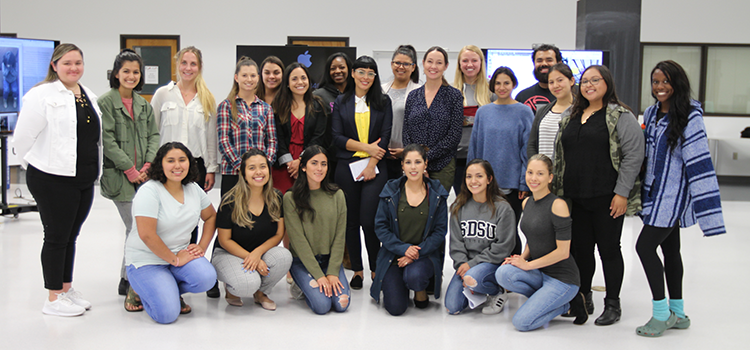
Learn about resources available to students in the Department of Child and Family Development.
Advising
- Pre-Major Academic Advising: If you are a first or second year undergraduate student with less than 60 units, please direct all questions or clarification of General Education (G.E.) requirements to the SDSU Undergraduate Advising Center.
- Enrolled CFD Undergraduates: Direct all questions about the Child Development major to our undergraduate advisors. Visit College of Education undergraduate advising.
- Graduate Advising: Visit Graduate Program Advising to find your program advisor.
Helpful Resources
- APA Writing Style: CFD students are required to be familiar with the research process and APA (American Psychological Association) writing style.
- Child and Family Development Student Organization (CFDSO)
- Financial Aid and Scholarship information for students in the College of Education. The campus scholarship application deadline each year is usually in early February. This means that you need to begin thinking about reviewing resources, picking up the forms, obtaining needed transcripts, and writing your essay or other required material around January of each year. The CFD department has a limited amount of scholarship and award funds available through 2 separate scholarship accounts. These are the Thair Milne and Georgia Tait Stooke Scholarship awards. Applicants for these 2 scholarships complete the regular SDSU scholarship application form, and it will be forwarded through to the department for review.
- Fingerprinting and background check requirements for CFD undergraduate students.
- Job and Volunteer Opportunities
- Reflective Learning Portfolio and Taskstream: a requirement for CFD students entering upper-division courses. Taskstream is the software you will need to create your portfolio.
-
Service Learning Agreement Master List: The Master List contains all existing Service Learning Agreements between CFD/College of Education/SDSU and the community partners. The list is regularly updated to reflect changes. Faculty members are encouraged to place students in these organizations for off-campus field experiences. View the CFD SLA Master List posted on the Field Experience page.
Students in the Classroom
Undergradutes
CFD 575: Public Policy and Ethics
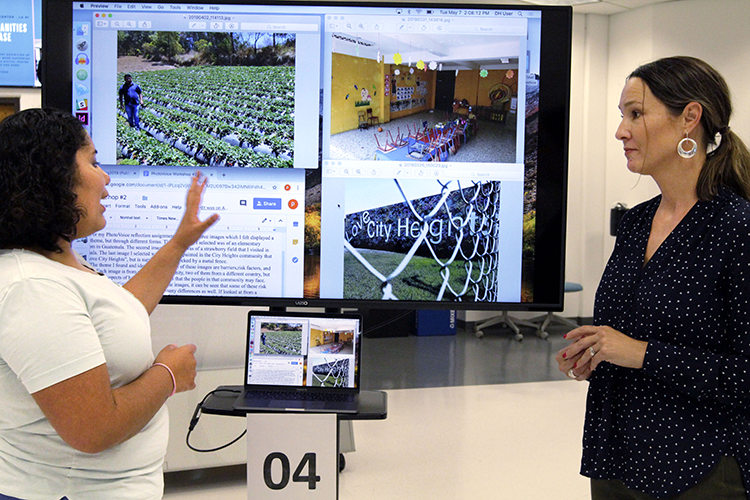
Strawberry Farm in Mexico
Dr. Sascha Longstreth listens as a student presents her research about the daily life and educational options on a strawberry farm in Mexico.
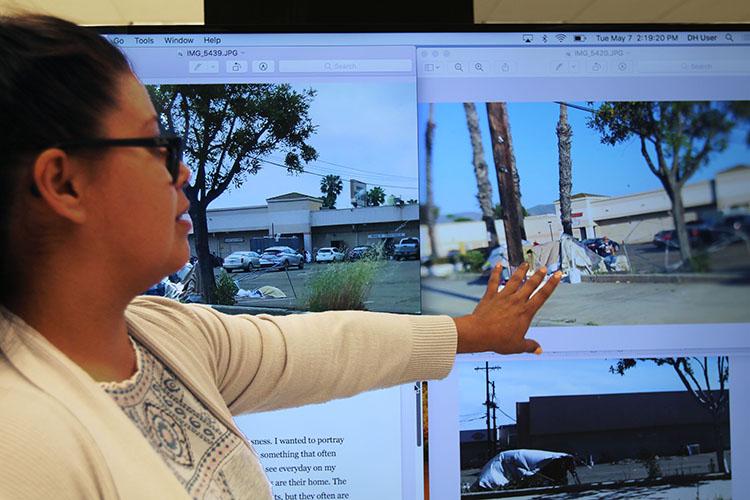
Homelessness
Alicia describes the conditions and daily life of the homeless population in Spring Valley, CA.
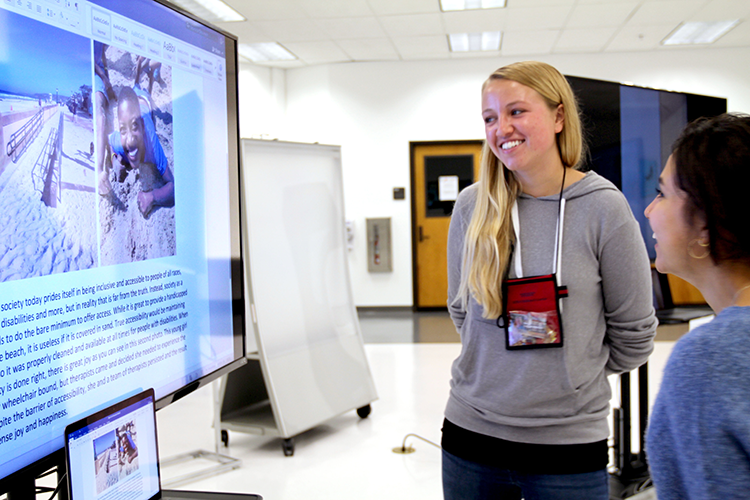
Disability Rights
A student compares disability access between South Africa and San Diego beaches and describes carrying disabled South African children to the sand.
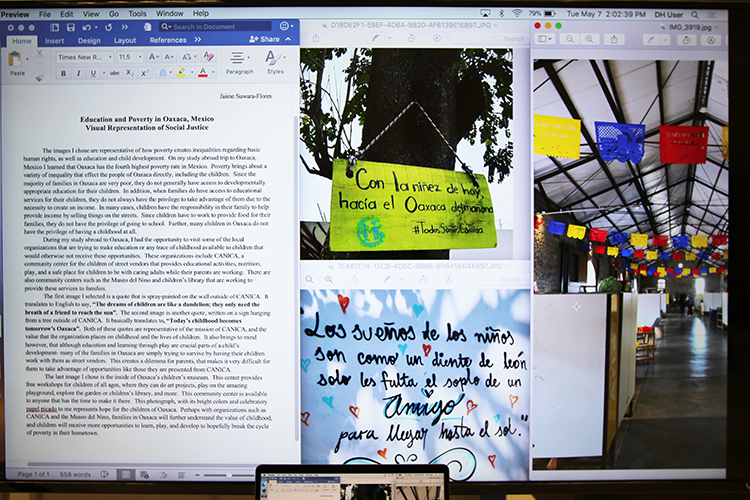
Education & Poverty in Oaxaca
Jaime Suwara-Flores centers around how poverty creates inequalities regarding basic human rights, as well as education and child development.
CFD 378D: Laboratory Experiences with Children & Families
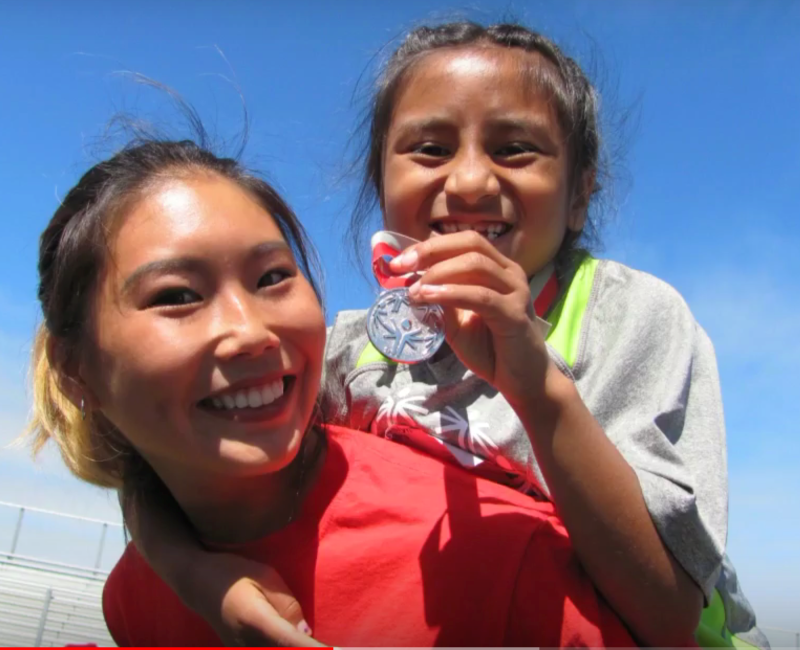
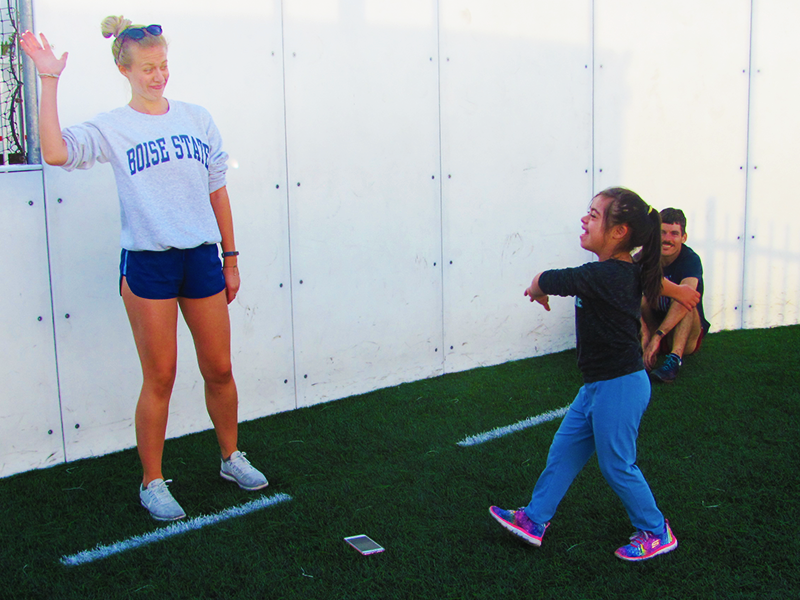
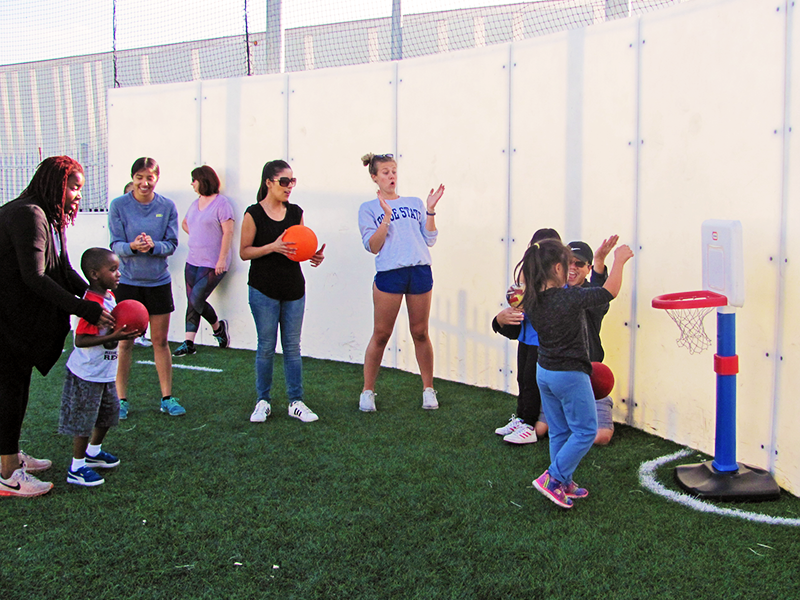
CFD 596: Children in Nature
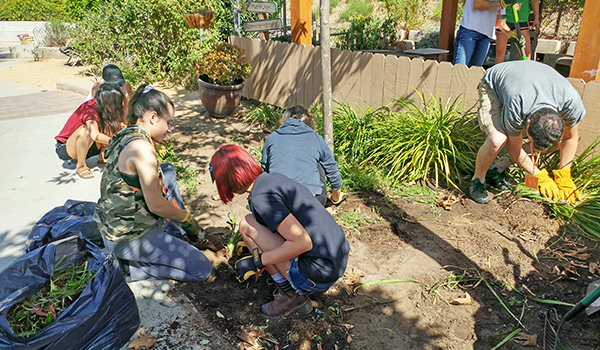
Sensory Path
For the first Service Learning project at the Children's Center, Fall 2017, a group of students designed and created a Sensory Path for the children to utilize all five senses when they walk through it.
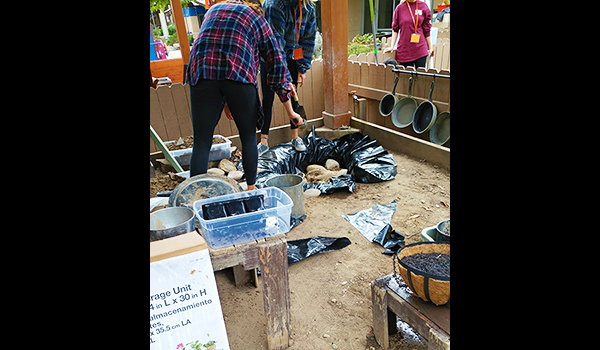
Mud Kitchen
Students refurbish an underutilized mud kitchen to make it more appealing to the children's creativity and purpose.
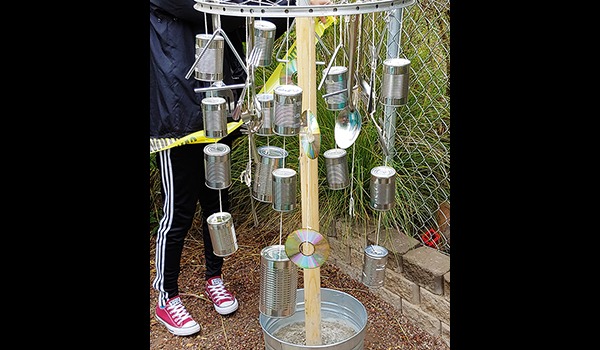
Wind Chime
In Spring 2019, the Children and Nature students were asked to create a standing wind chime for the Memory Park area of SDSU's Children's Center; keeping in mind safety and durability.
Graduates
Dr. Linder's Early Childhood Mental Health Clinic
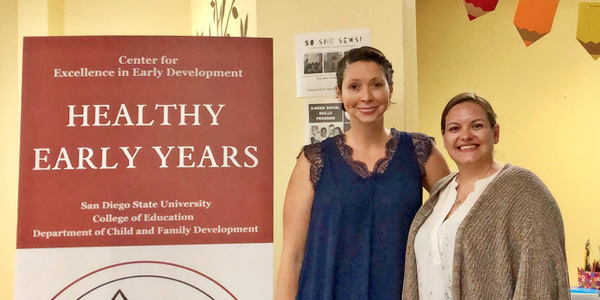
Dr. Lisa Linder and graduate student Briana Bashaw-Wood at the clinic.
CFD assistant professor, Dr. Lisa Linder, opened an Early Childhood Mental Health Clinic last fall. The center has helped meet the community’s need for mental health services for families and children from pre-natal to 8-years-old. The clinicians at the Early Childhood Mental Health Clinic are CFD practicum students in the final year of their master’s program in clinical counseling. Two full-time practicum students work about 20 hours per week in the center, while about 16 others see about 1-2 clients per week.
For more information, read the full story behind the center here.

